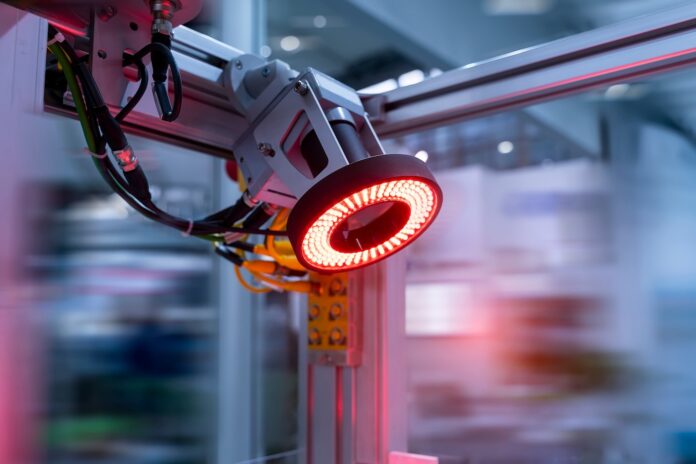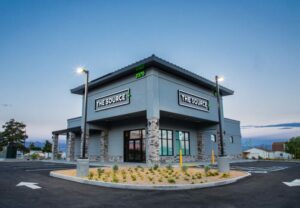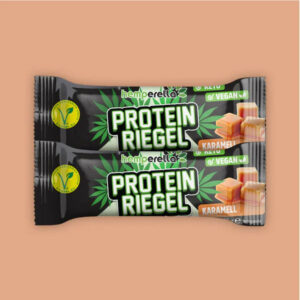Data collection and monitoring of the environment, water conditions, and media are essential for commercial growers trying to push their plants to their full genetic potential. With a small array of industry-focused sensors or handheld devices, forward-thinking cultivators gain access to valuable insights into the long list of factors directly impacting their garden’s overall growth and health.
With real-time and historical information, data from sensors can be used to create log books with detailed notes that paint a clear picture of where things may be going wrong throughout production cycles. Ultimately, the key indicators provided by sensors help growers create standard operating procedures that lead to consistent, high-yielding crops.
What are the different types of sensors?
There are several different types of sensors used to monitor and control various aspects of the cultivation facility, including water, nutrients, and environmental conditions. Sensors use many different communication protocols and proprietary technologies to produce real-time data for water parameters, environmental status, and media conditions. On the entry-level side, they’re available as simple, standalone handheld devices capable of data logging over short periods. However, larger facilities will want to consider sensors built for automated control systems with customizable user-defined setpoints and long-term data storage options.
Being able to monitor the status of nutrient solutions, run-off from irrigation, and incoming water supplies are essential metrics for commercial cultivators to monitor. Sensor manufacturers have created devices capable of measuring a wide variety of water conditions for both the water supply and the growing media. These sensors can measure parameters like pH, electrical conductivity, temperature, dissolved oxygen, and oxidation-reduction potential. Some of these monitoring solutions are available as handheld devices that may include two or three sensors in one small unit. In most cases, tracking tools for pH, temperature, and electrical conductivity are included in one device.
Knowing the conditions of the growing environment helps cultivators understand how plants are progressing and how water is moving from them into the environment. Companies have created sensors for monitoring temperature, humidity, CO2 levels, and light conditions. Environmental sensors are available as handheld devices, but many work in conjunction with automated control systems run through a local network or cloud-based system with remote monitoring services.
7 cannabis sensor companies to consider
Pulse
Type: environment and media
Price: $199 to $999
The Pulse lineup of sensors includes options for environmental sensors, media sensors, and water sensors. All of the Pulse devices include data monitoring and logging through its proprietary app, which requires the sensors to have access to a reliable WiFi signal.
Aroya
Type: environment and media
Price: $2,499 to $4,815
The Aroya suite of solutions offers sensors to monitor and log data for both the growing media and environment. Aroya’s sensors utilize an internet connection, ensuring data can be stored in the cloud for up to 60 days. The Aroya sensor packages include a three-year subscription to the company’s software application.
AI Grow
Type: environment
Price: $1,200 to $2,499
AI Grow’s Birdhouse is a proprietary environmental data logger and monitor. It includes sensors for CO2 levels, temperature, humidity, and light. The Birdhouse is available in two versions: a standalone data logger and monitor, and a light controller version that includes data logging and monitoring.
The data logger and monitor version is capable of integrating with programmable logic controllers, allowing growers to set operating parameters to control devices. The light controller version can control a single light zone with up to 50 lights with functions for scheduling on and off times as well as customizable set points based on input from its built-in photosynthetic active radiation or PAR sensor.
Hanna Instruments
Type: media and water
Price: $70 to $500
Hanna Instruments manufactures a line of sensors for monitoring water quality. The company has a wide range of sensors designed to monitor and log parameters, including pH, electric conductivity, dissolved oxygen, and oxidation-reduction potential. Handheld options include devices for monitoring multiple water conditions and individual parameters. Hanna also offers automated controllers to maintain water quality based on user set points.
Blue Labs
Type: media and water
Price: $70 to $3,000+
Blue Labs manufactures sensors and controllers for environmental, media, and water conditions. The company has a range of handheld sensors for data logging and monitoring for soil conditions and water conditions. In addition to the handheld options, Blue Labs offers integrated systems capable of automated dosing functions and environmental controls. Custom nutrient recipes can be delivered to plants per the grower’s settings, and specific temperature and humidity parameters can be dialed in to spec.
Apogee
Type: environment and media
Price: $300 to $6,000
Apogee specializes in the creation and manufacturing of environmental sensors. Apogee’s sensor line-up includes devices for measuring several different light conditions, air temperature, oxygen concentration, humidity, and CO2. The company also offers handheld options for real-time mobile monitoring as well as sensors capable of integrating into an environmental control system.
Titan Controls
Type: environment and media
Price: $300 to $600
Titan Controls manufactures a three-in-one vapor pressure deficit sensor that monitors temperature, humidity, and air pressure in the growing environment. In addition, Titan has a substrate sensor capable of monitoring temperature, electrical conductivity, and volumetric water content. Titan also manufactures a line of controllers capable of using sensor input to maintain the operating levels set by growers.
Sensors: a critical tool for cultivators
Data is a grower’s best friend. Understanding how the garden responds to different inputs allows growers to fine-tune devices to maintain their desired growth conditions and push their plants to reach their full genetic potential and retail price point. Using sensors to get real-time data and log historical data is essential for any professional grower looking to maximize their yields while ensuring consistent and replicable results in outdoor, indoor, and greenhouse gardens.
- SEO Powered Content & PR Distribution. Get Amplified Today.
- PlatoData.Network Vertical Generative Ai. Empower Yourself. Access Here.
- PlatoAiStream. Web3 Intelligence. Knowledge Amplified. Access Here.
- PlatoESG. Carbon, CleanTech, Energy, Environment, Solar, Waste Management. Access Here.
- PlatoHealth. Biotech and Clinical Trials Intelligence. Access Here.
- Source: https://mgmagazine.com/business/growing-horticulture/sensors-for-cannabis-growers/
- :has
- :is
- :where
- $3
- $UP
- 200
- 50
- 60
- 7
- a
- Able
- access
- active
- addition
- AIR
- All
- Allowing
- allows
- also
- an
- and
- any
- app
- Application
- ARE
- Array
- AS
- aspects
- Automated
- available
- based
- BE
- BEST
- Blue
- Books
- both
- built
- built-in
- but
- by
- CAN
- cannabis
- capable
- cases
- clear
- Cloud
- co2
- collection
- commercial
- Communication
- Companies
- company
- Company’s
- concentration
- conditions
- conductivity
- conjunction
- connection
- Consider
- consistent
- content
- control
- controller
- controls
- create
- created
- creation
- critical
- crops
- cultivation
- custom
- customizable
- cycles
- data
- data monitoring
- data storage
- Days
- DEFICIT
- delivered
- designed
- desired
- detailed
- device
- Devices
- different
- directly
- dosing
- Electric
- ensuring
- entry-level
- Environment
- environmental
- essential
- facilities
- Facility
- factors
- For
- friend
- from
- full
- functions
- Gain
- Garden
- Gardens
- genetic
- get
- going
- Grow
- growers
- Growing
- Grows
- Growth
- Have
- Health
- help
- helps
- historical
- How
- However
- HTTPS
- impacting
- in
- include
- included
- includes
- Including
- Incoming
- Indicators
- individual
- Indoor
- industry
- information
- input
- inputs
- insights
- instruments
- integrated
- Integrating
- Internet
- internet connection
- into
- IT
- ITS
- jpg
- Key
- Labs
- larger
- lead
- levels
- light
- like
- Line
- lineup
- List
- local
- log
- logging
- logic
- Long
- long-term
- looking
- maintain
- Manufacturers
- manufacturing
- many
- Maximize
- May..
- measure
- measuring
- Media
- Metrics
- Mobile
- Monitor
- monitoring
- monitors
- most
- moving
- multiple
- network
- New
- Notes
- of
- off
- Offers
- on
- ONE
- opens
- operating
- optimization
- optimizing
- Options
- or
- Outdoor
- over
- overall
- Oxygen
- packages
- paint
- parameters
- per
- periods
- picture
- plants
- plato
- Plato Data Intelligence
- PlatoData
- Point
- points
- potential
- pressure
- price
- produce
- Production
- professional
- programmable
- progressing
- proprietary
- protocols
- provided
- pulse
- Push
- quality
- Radiation
- range
- reach
- real-time
- real-time data
- Recipes
- reliable
- remote
- requires
- Results
- retail
- robot
- Run
- scheduling
- sensor
- sensors
- Services
- set
- settings
- several
- Short
- shutterstock
- side
- Signal
- Simple
- single
- small
- smart
- Software
- soil
- Solutions
- some
- specializes
- specific
- standalone
- Status
- storage
- storage options
- stored
- subscription
- substrate
- suite
- supplies
- supply
- system
- Systems
- Technologies
- Technology
- that
- The
- their
- Them
- These
- things
- three
- Through
- throughout
- times
- titan
- to
- tool
- tools
- Tracking
- trying
- two
- types
- Ultimately
- understand
- understanding
- unit
- use
- used
- User
- using
- utilize
- Valuable
- variety
- various
- version
- versions
- volumetric
- want
- Water
- WELL
- which
- while
- wide
- Wide range
- wifi
- will
- with
- Work
- Wrong
- yields
- zephyrnet
- zone













